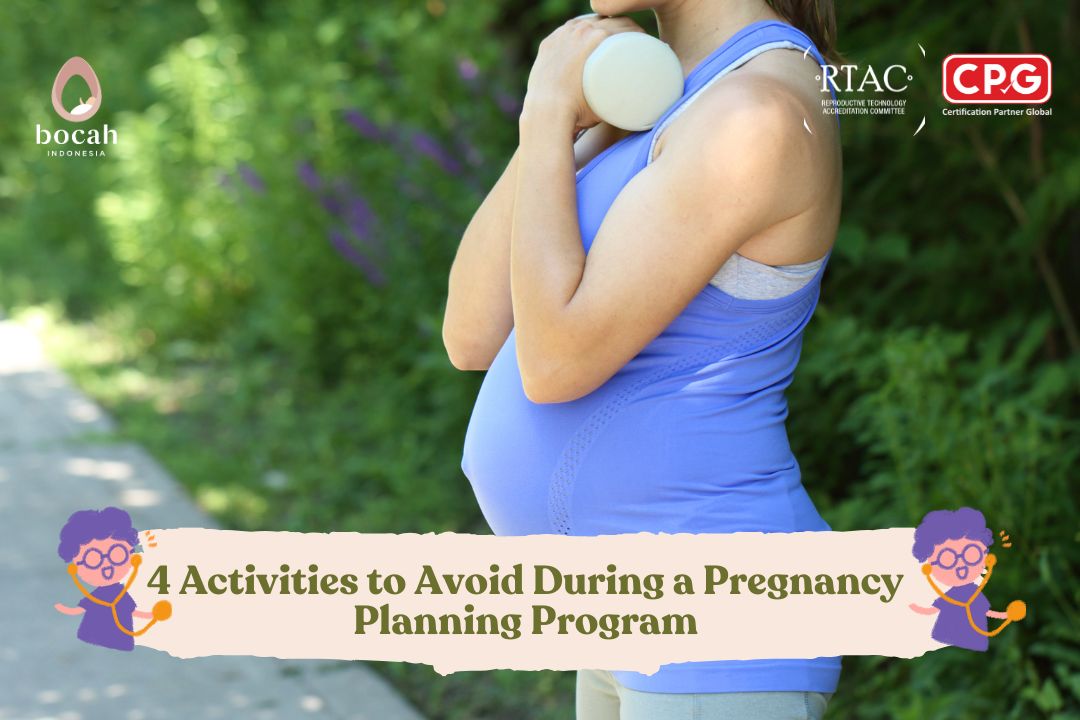Are There Any Exercise Restrictions During a Pregnancy Program (Promil)?

When undergoing a pregnancy program (promil), there are certain things you can do and some you need to pay attention to—one of which is physical activity.
If you and your partner are planning for pregnancy, you might be wondering: Is it safe to exercise or engage in physical activity as usual? The good news is, most daily habits, including exercise, can generally continue without major changes.
Research shows that regular exercise at light to moderate intensity can improve fertility. Consistent physical activity supports ovulation, regulates menstruation, and helps prepare the body for both pregnancy and delivery.
Benefits of Exercise Before Starting a Pregnancy Program
Did you know that exercising regularly offers many benefits that can support your conception journey? Here are some of them:
-
Helps maintain ideal body weight, improves blood circulation, and reduces the risk of ovulatory disorders
Tanya Mincah tentang Promil?
-
Assists in maintaining healthy weight during pregnancy, lowering the risk of gestational diabetes and preeclampsia
-
Reduces stress
-
Improves sleep quality
-
Enhances mood and emotional well-being
-
Promotes long-term overall health
Exercise is not only beneficial before conception; it also supports health during pregnancy by:
-
Improving the health of both mother and baby
-
Preparing the body for labor and delivery
-
Helping pregnant women sleep better
-
Relieving discomforts like constipation or back pain
Exercises to Avoid During a Pregnancy Program
Generally, there are no strict prohibitions on specific types of exercise during promil. However, it is advisable to avoid certain high-intensity activities, such as:
-
Basketball and other competitive high-impact sports
-
Excessive cycling for men (as it can raise scrotal temperature and affect sperm quality)
-
Exercising in extreme heat
-
Sports with a high risk of falling, such as skiing
-
Exercises requiring prolonged breath-holding (e.g., free diving)
-
Intense workouts aimed at drastic weight loss, as this may disrupt ovulation
-
Activities involving frequent bouncing, jumping, or spinning movements
Exercise Guidelines for Couples in a Pregnancy Program
Follow these safe workout tips when trying to conceive:
-
Start slowly if you are new to exercising—avoid overexertion
-
Stay hydrated and eat nutritious meals
-
Stop immediately if you feel fatigue, dizziness, or cramps
-
Aim for 30–90 minutes per session, 2–3 times per week, and increase intensity gradually
-
Avoid severe calorie restriction or extreme weight loss
Exercise plays an important role in maintaining hormonal balance, including hormones that regulate sperm and egg production. Essentially, there is no universal rule forbidding exercise during a conception program, as long as it is done correctly and in moderation.
Additional Tips for a Healthy Pregnancy Program
Aside from exercising, adopt a healthy lifestyle by:
-
Drinking enough water to stay hydrated
-
Managing stress effectively
-
Ensuring adequate sleep every night
In conclusion, there are no absolute exercise restrictions during a pregnancy program, but it is crucial to choose safe activities and avoid anything that could hinder your fertility efforts. Don’t forget to schedule a fertility check-up before starting your program.
Source:
-
Harrison, CL., et al. (2020). The Role of Physical Activity in Preconception, Pregnancy and Postpartum Health. Semin Reprod Med. 34(2): e28–e37.
-
Mussawar, M., et al. (2023). The effect of physical activity on fertility: a mini-review. F S Rep. 4(2):150–158.










